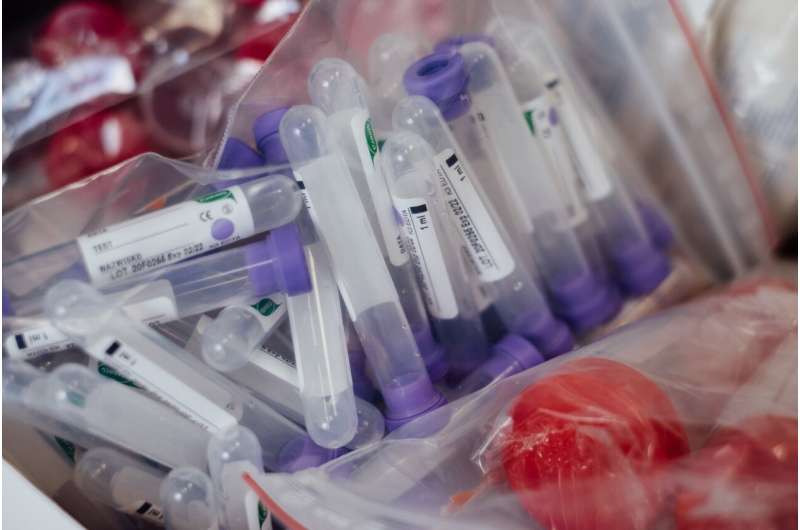
Europe’s medicines regulator said Tuesday that blood clots should be listed as a “very rare” side effect of Johnson & Johnson’s coronavirus vaccine, but that the benefits of the shot still outweigh the risks.
The United States is also expected to announce its decision on the single-shot J&J vaccine by Friday, as nations around the world urgently try to accelerate inoculation campaigns and revive their pandemic-ravaged economies.
The European Medicines Agency (EMA) assessment came as an EU official promised to have enough doses available to vaccinate 70 percent of European adults by the summer—a boon for the continent’s sluggish rollout.
Europe’s Johnson & Johnson campaign was delayed after US health regulators said the shot should be paused over blood clot fears.
After conducting a review of isolated cases of clotting among people who received the vaccine, EMA’s safety committee said it found a “possible link” between the jab and the medical condition.
The regulator said its safety committee “concluded that a warning about unusual blood clots with low blood platelets should be added to the product information” for the J&J shot.
“These events should be listed as very rare side effects of the vaccine,” it said in a statement.
Only two countries had started administering the J&J shot before it was paused—the United States and South Africa—with more than seven million doses given out so far, according to an AFP tally.
The vaccine was praised as easier to administer and transport than some of its rivals, because it requires just one dose and can be stored at warmer temperatures.
The EU approved the J&J shot on March 3 and started taking deliveries on April 19, but has not yet started administering it to people.
‘We remain confident’
A top Johnson & Johnson executive said Tuesday he was confident in the jab and that he hopes for a speedy resolution to the current pause.
“We remain very confident and very hopeful that the benefit-risk profile will play out,” Chief Financial Officer Joseph Wolk told CNBC.
The company hopes “very shortly … perhaps as early as the end of this week, to have some resolution with how we are going to proceed,” he added.
The J&J concerns follow similar reports of blood clots in a very small number of people who received the AstraZeneca shot.
The EMA similarly described those clots as a “very rare” side effect, stressing that the AstraZeneca jab’s benefits outweigh the risks.
Europe’s leaders are keen to accelerate vaccinations and expand availability after facing intense criticism over a slow rollout and with the public desperate for a return to some degree of normality.
Thierry Breton, the EU’s internal markets commissioner, said the bloc is now set to have enough doses to cover 70 percent of its adult population by mid-July, after previously struggling to secure supplies from drugmakers.
“I am now certain of how many doses are currently in production and I know how many millions will be delivered each week,” he told French daily Le Figaro.
“This allows me to assure you that we well have by mid-July the number of doses necessary for vaccinating 70 percent of the European Union’s adult population.”
Crisis in India
India, home to 1.3 billion people, is battling a worrying surge, with record daily case numbers overwhelming already stretched hospitals.
The capital New Delhi was locked down Monday for a week, and the government said all adults would be eligible for a vaccine from May as it tries to get a grip on the crisis.
The Delhi lockdown follows strict restrictions already imposed in other Indian states.
The US Centers for Disease Control on Monday advised against all travel to India, and the UK imposed restrictions on arrivals from the country.
The brutal wave has dramatically increased the workload for crematoriums and gravediggers, with social media and newspapers flooded with horrifying images of row upon row of burning pyres.
The chimney of one electric furnace in the western city of Ahmedabad cracked and collapsed after being in constant use for up to 20 hours a day for the past two weeks.
At a cemetery in New Delhi, gravedigger Shamim told AFP: “At this rate, I will run out of space in three or four days.”
Concerns about a spike were also growing in Japan, where the third most populated region, Osaka, on Tuesday asked the central government to impose a state of emergency as infections rise just three months before the country hosts the Olympics.
Source: Read Full Article






